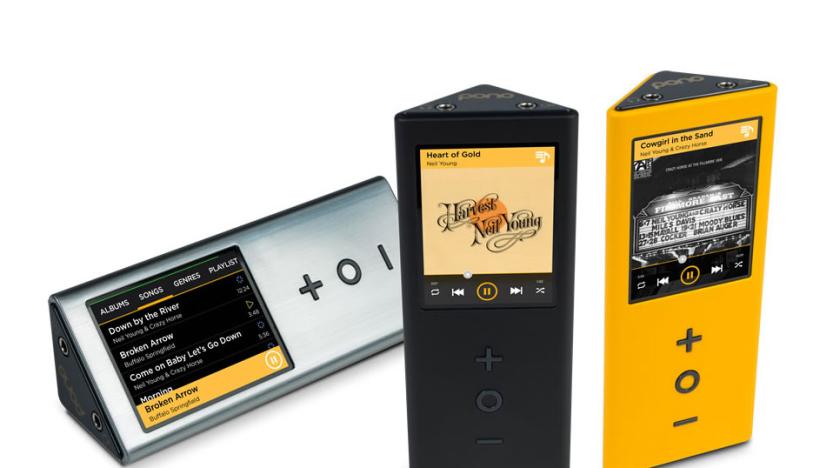24bit
Latest

Neil Young's Pono will launch an adaptive bitrate streaming service
Neil Young could be about to launch the most interesting streaming service to come along in a long while. No, really. Young recently spoke at length with Rolling Stone's Music Now podcast. While mostly discussing music, he also divulged his future plans for Pono. Launched in 2014 on Kickstarter as a high-resolution music player and download service, Pono captured the imagination of select audiophiles and not many others. Its total sales were in the tens of thousands as of last year, and its download service is in hiatus after the company running it was acquired. Now, Young's company is planning a streaming service. What's interesting about it is not the fact that it's promising to stream 192kHz, 24-bit resolution audio. Although it totally is. No, what's interesting is that it's promising high-quality adaptive bitrate streaming, which would be a first for a streaming service. See, when you load up your music app of choice, you typically pick a bitrate for downloads, and a bitrate for streaming. In Spotify, for example, you can choose from anywhere between 96kbps and 320kbps bitrates for streaming and downloads. What Pono is proposing is to do away with those designations.

Apple, others in talks to improve quality of music downloads
CNN reports that Apple is in touch with record labels to try and improve the quality of the downloadable music it sells on iTunes and elsewhere. Currently, the MP3s sold on iTunes are formatted as 16-bit files, but under the new proposal, they'd be upgraded to 24-bit files, which means the files would have more audio data included, and thus be able to play out at a higher resolution. As Chris Foresman at Ars argues, however, it may not matter. While higher quality is always nice to have (and there's no reason Apple shouldn't have it, unless the audio needs to be compressed further for streaming or other memory concerns), most people won't hear the full resolution anyway. You can have the highest quality audio files you want, but when you're playing them through a set of cheap speakers (or even the MacBook's default built-in speakers), you're not going to hear all of the highs and lows that you should. Still, it will be nice to have the higher resolution, and it'll give Apple and iTunes yet another selling point if the agreement can be made (not to mention sell a lot of higher-quality audio speakers and other products as well). So, I expect we'll see it happen before long. Remember way back in 2007 when Apple raised the encoding rate to 256 Kb/s? [via Electronista]

Ratoc's REX-LINK2 and REX-WHP2 for quality wireless audio
There's a dirty little secret inside many of those wireless audio streaming solutions; it's called compression. Unfortunately, audio is often compressed to make the most of the limited available bandwidth. That's where Japan's Ratoc hopes to step in with their UWB solution capable of transmitting 24bit/96kHz audio. Unfortunately, that device -- the REX-Link3 is still in the shop -- today they are announcing their REX-Link2 receiver and USB transmitter pair in addition to their REX-WHP2 wireless headphones. Both are capable of 16bit/44.1kHz CD-quality audio transmitted in linear PCM format. Besides sportin' a quality AK4353 DAC and S/PDIF jack, the ¥17,800 ($147) REX-Link2 features the ability to stream digital audio up to 10-meters away from your PC over 2.4GHz -- supplanting their REX-Link1 system which relied upon the inferior SBC codec found in Bluetooth's A2DP for example. The ¥31,800 ($263) REX-WHP2 headphones weigh 160-grams and feature a lithium polymer battery for about 17-hours of wireless audio before needing a recharge. They also feature local audio level adjustment without having to touch your PC or Mac. Expect 'em both to hit Japan no later than March. Oh, and you can check the REX-Link3 engineering prototype after the break.[Via Impress]
